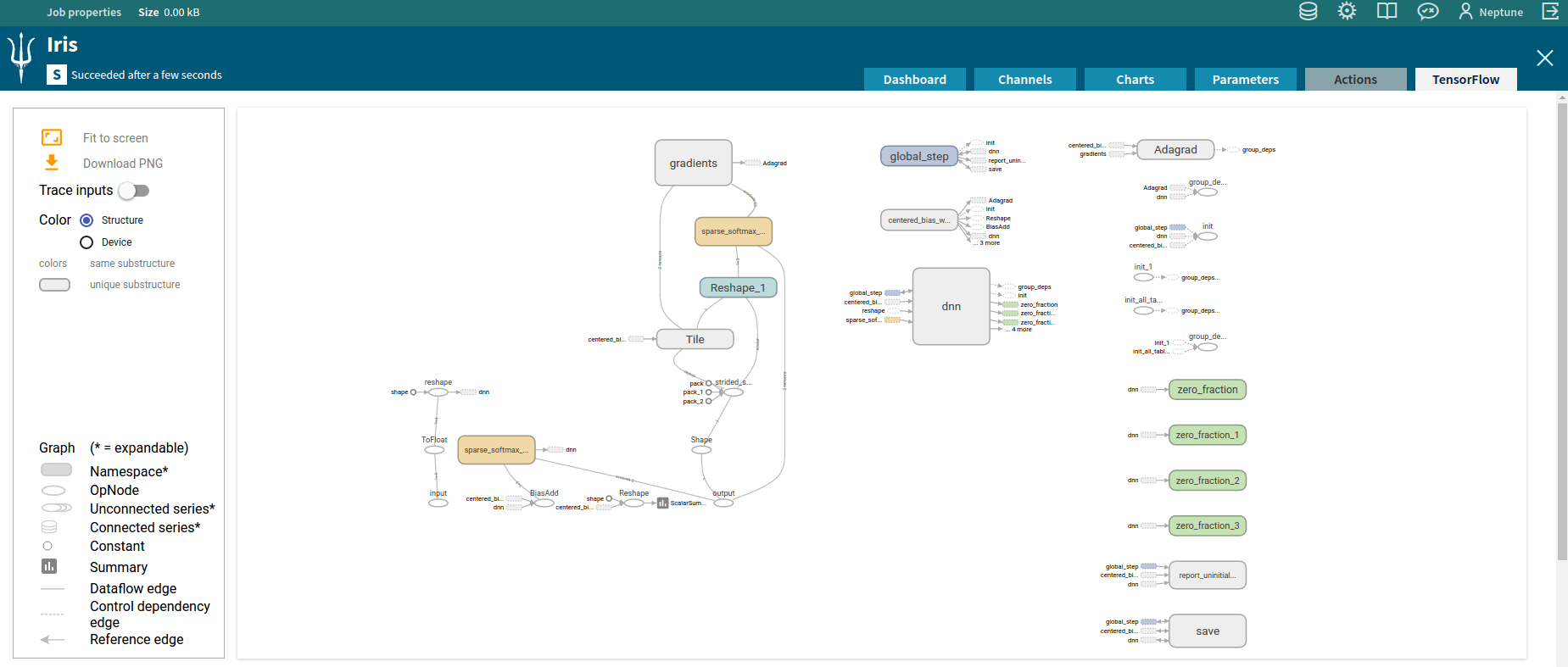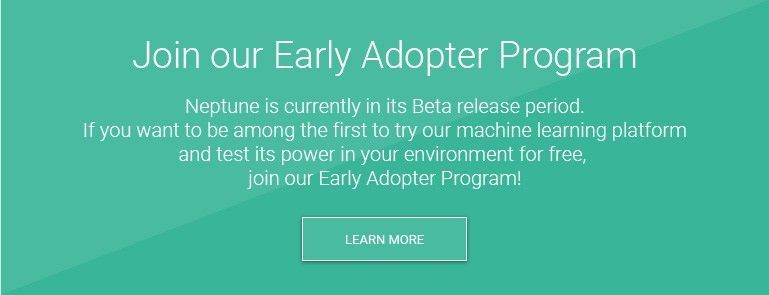Neptune 1.3 with TensorFlow integration and experiments in Docker
We’re happy to announce that a new version of Neptune became available this month. The latest 1.3 release of deepsense.ai’s machine learning platform introduces powerful new features and improvements. This release’s key added features are: integration with TensorFlow and running Neptune experiments in Docker containers (see complete release notes).
TensorFlow Integration
The first major feature introduced in Neptune 1.3 is TensorFlow integration. We think that TensorFlow will become a leading technology for deep learning problems. TensorFlow comes with its own monitoring tool: TensorBoard. We don’t want to compete with TensorBoard, instead we want to incorporate TensorBoard’s well known functionalities into Neptune. Starting with Neptune 1.3, data scientist can see all available TensorBoard metrics and graphs in Neptune. Read more.

Running Neptune Experiments in Docker Containers
Neptune creates a snapshot of code for every experiment execution. Thanks to this users can easily recreate the results of every experiment. The problem is that the technology world is changing very quickly and saving the source code is often not enough. We also need to save our execution environment because the source code depends on specific versions of libraries. Neptune 1.3 gives users the option to run a Neptune experiment in a Docker container. A Docker container is an encapsulation of the execution environment. Thanks to this the user can have containers with different versions of the libraries and use them on the same host to recreate the experiment’s results.
Running Neptune experiments in Docker containers is also important for Windows users. The suggested way of running TensorFlow experiments on Windows is to run them in Docker containers. Now, a data scientist can use TensorFlow with Neptune on Windows.
Follow the link to read more about running Neptune experiments in docker containers.
Future Plans
We are already working on the next version of Neptune which will be released at the end of January 2017. The next release will contain:
- Client Library for R and Java; and
- Support for hyperparameter optimization, grid search method.
We hope you will enjoy working with our machine learning platform, which now features TensorFlow integration and enables running experiments in Docker containers. If you’d like to provide us with any feedback, feel free to use our forum at https://community.neptune.ml/.
Don’t have Neptune yet? Join our Early Adopters Program and get free access.




